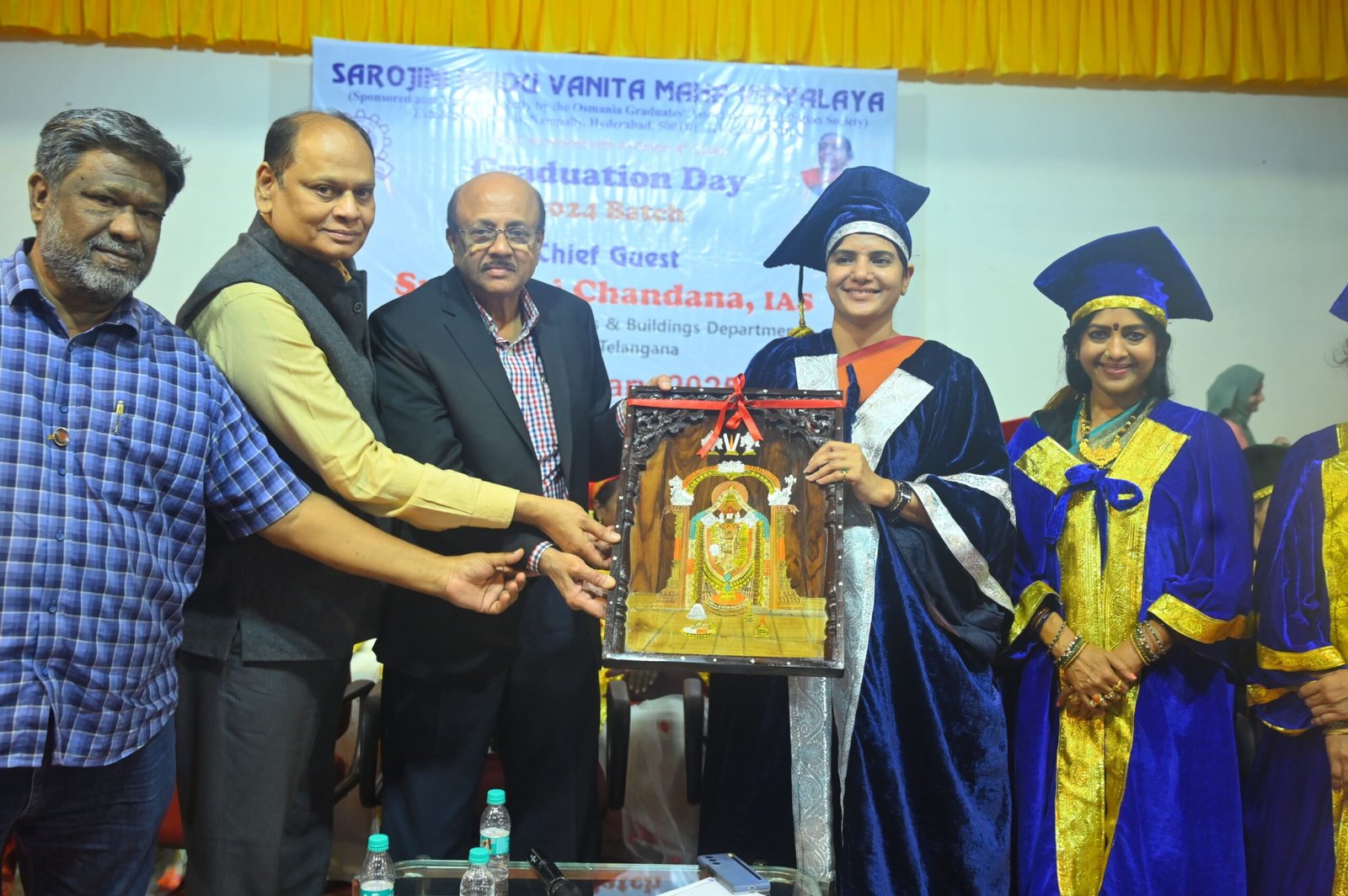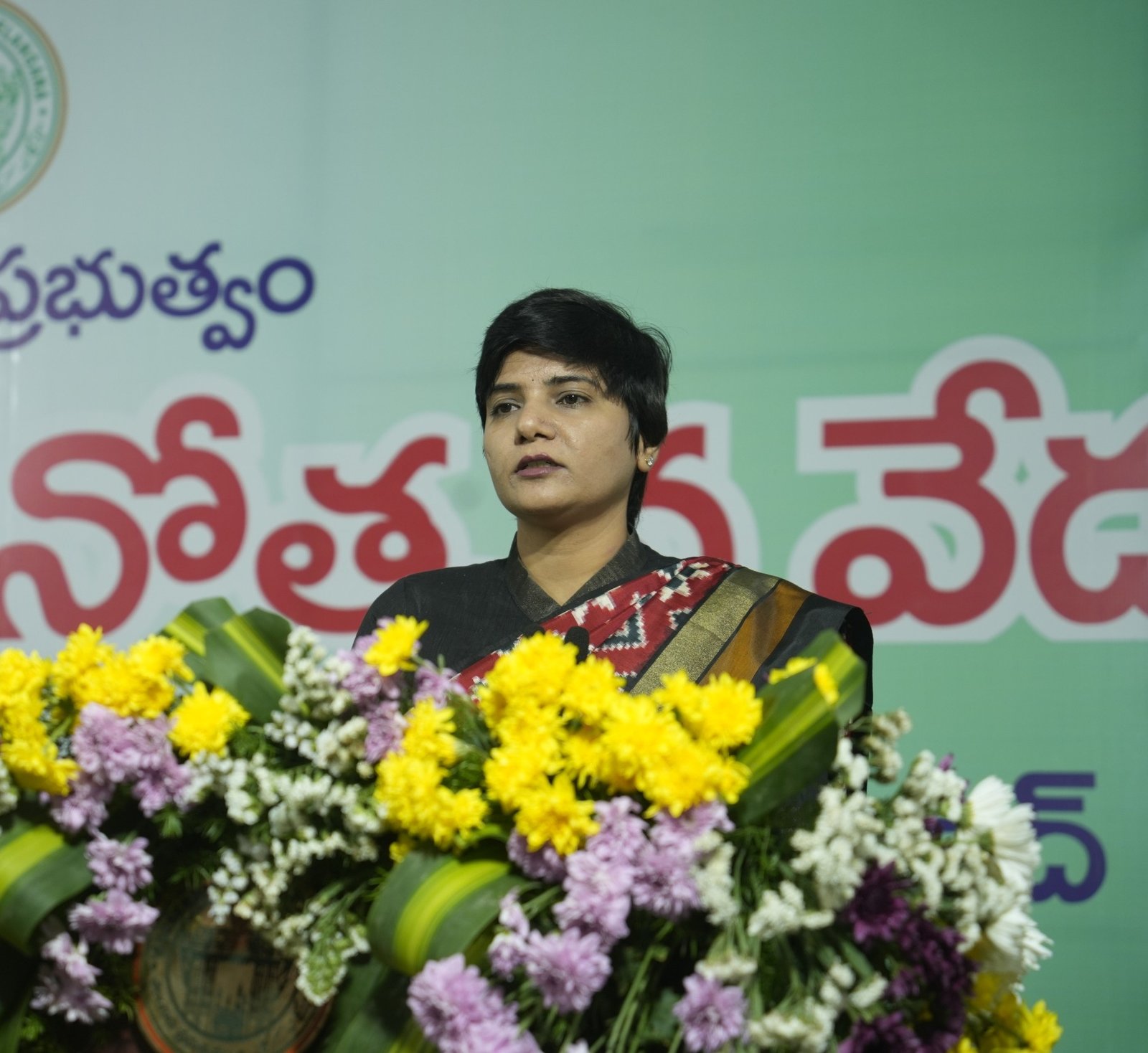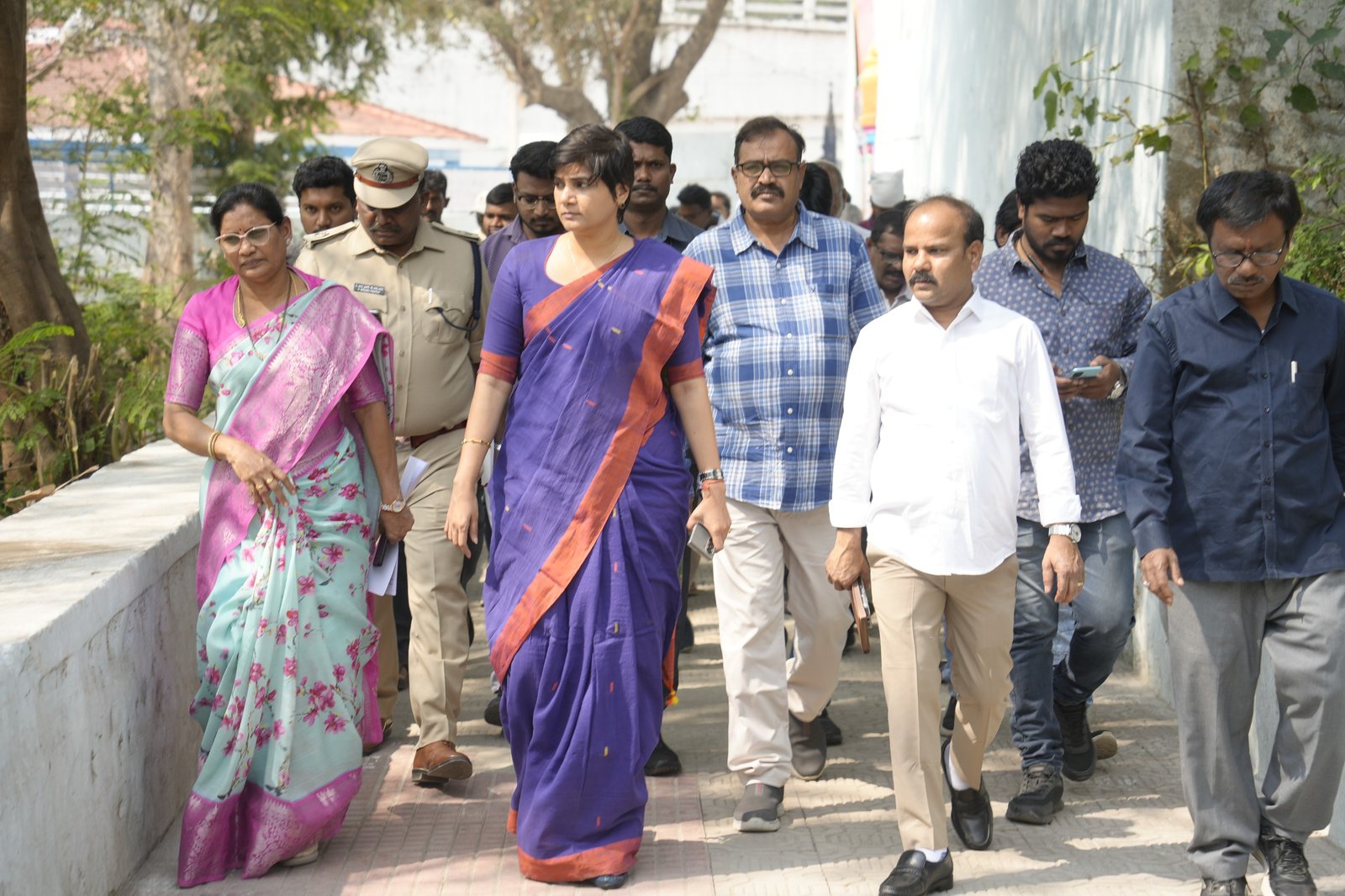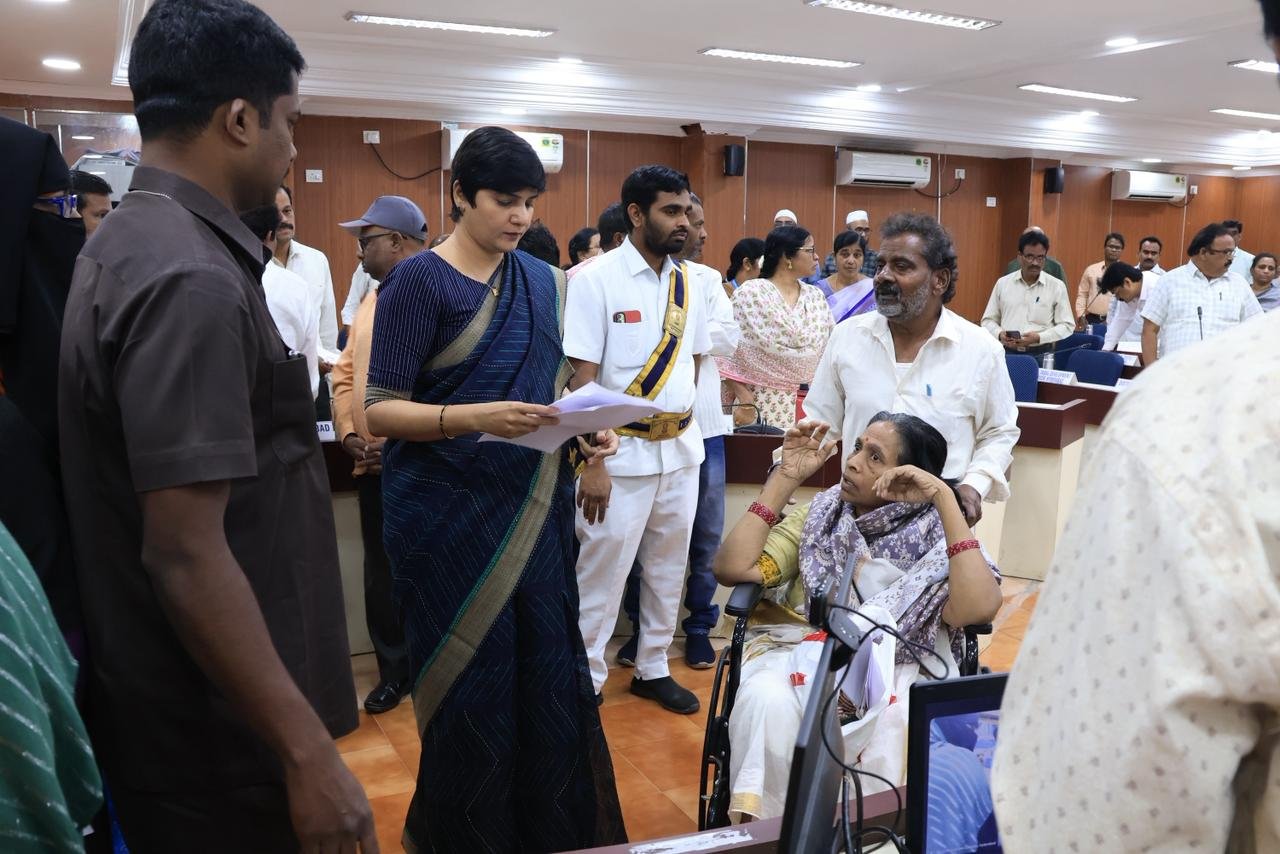Preparing for the UPSC Civil Services Examination is often described as one of the most demanding intellectual and emotional challenges faced by aspirants in India. With its multi-stage structure—Prelims, Mains, and the Personality Test —this exam requires not just academic knowledge but also unwavering focus, emotional resilience, and clarity of purpose. The long preparation cycle, the uncertainty of results, and intense competition make it a mentally exhausting path for many.
In this context, the Bhagavad Gita is more than a religious scripture. It is a timeless philosophical text that provides deep insights into self-discipline, emotional balance, and ethical clarity. The teachings of the Gita transcend spiritual boundaries and offer universal guidance on handling inner conflict, overcoming fear, and staying grounded in one’s purpose qualities, which are immensely relevant for a UPSC aspirant.
This blog explores how the Bhagavad Gita can serve as a valuable companion for aspirants in managing the pressures of the UPSC journey and developing the intellectual sharpness, emotional stability, and moral grounding required to become a responsible civil servant. Through its teachings, aspirants can cultivate a mindset of calm determination, detach from outcomes, and align their preparation with a more profound sense of duty and purpose.
Understanding the Bhagavad Gita
The Bhagavad Gita is one of the most profound philosophical texts in Indian and global thought. Its origin lies within the epic Mahabharata, specifically in the Bhishma Parva (Book of Bhishma), where it represented the dialogue between Lord Krishna and the warrior Arjuna. This dialogue occurs on the Kurukshetra just before a monumental war begins between two factions of the same royal family, the Pandavas and the Kauravas. Arjuna, seeing his relatives, teachers, and friends on both sides of the battlefield, is gripped by moral confusion and emotional breakdown. At this moment, Krishna delivers the Gita’s wisdom, guiding Arjuna to perform his duty with clarity, courage, and detachment.
Structurally, the Bhagavad Gita comprises 18 chapters and contains 700 Sanskrit shlokas (verses). Each chapter, known as ‘Yoga,’ deals with a particular path to spiritual or philosophical realizations, such as Karma Yoga (path of action), Bhakti Yoga (path of devotion), Jnana Yoga (path of knowledge), and others. These chapters are not isolated doctrines but interlinked paths that address the holistic development of an individual mind, emotion, intellect, and spirit. The dialogic structure allows Krishna to respond to Arjuna’s doubts and fears with philosophical depth, psychological insights, and practical instructions, making the Gita a layered text that speaks to individuals across centuries and contexts.
Importantly, the Bhagavad Gita is not a religious text in the narrow sense. While rooted in Hindu tradition, its core teachings transcend the boundaries of any specific faith. It does not advocate ritualistic practices or religious exclusivism. Instead, it offers a universal message of self-mastery, ethical living, duty without attachment, inner stability, and purposeful action. These principles resonate across belief systems and are especially relevant in today’s world, where mental clarity, personal discipline, and moral integrity are in high demand.
Through its blend of spiritual wisdom and psychological insight, the Bhagavad Gita offers a toolkit for navigating complex challenges with composure, something every UPSC aspirant can deeply benefit from.
Parallels Between UPSC Preparation and the Kurukshetra Battlefield
The Bhagavad Gita opens on the battlefield of Kurukshetra, a symbolic and literal warzone where Arjuna, the great warrior, faces an emotional and ethical crisis. Despite being well-trained and fully equipped for battle, he is overwhelmed by the gravity of the situation, fighting against his relatives, mentors, and friends. He experiences deep confusion, sorrow, and fear, ultimately questioning the very purpose of the war. This is known as Arjuna’s dilemma, which mirrors the internal conflict many UPSC aspirants face. Despite months or years of rigorous preparation, aspirants often find themselves uncertain, questioning their career choices, doubting their capabilities, or fearing the consequences of failure. Just as Arjuna is paralyzed by emotional and moral exhaustion before the battle begins, aspirants, too, experience psychological fatigue before or during their examination journey.
Lord Krishna acts as Arjuna’s guide and spiritual mentor in the Bhagavad Gita. He doesn’t fight Arjuna’s battle for him but helps him gain inner clarity, perspective, and resolve. Krishna’s teachings encourage Arjuna to rise above his attachments and dilemmas, act according to his duty (svadharma), and embrace action with detachment from results. This role of Krishna is analogous to the inner guidance or clarity that a UPSC aspirant must cultivate. While teachers, mentors, and peer groups can offer external support, the fundamental transformation happens when aspirants develop their inner compass, sense of purpose, ethical grounding, and the ability to make tough decisions under pressure. Without someone like Krishna, the Gita becomes that guiding voice, helping aspirants navigate confusion and moral uncertainty.
The UPSC journey is often referred to as a mental battlefield, and rightly so. The challenges go beyond academic study; aspirants must grapple with self-doubt, fear of failure, societal expectations, family pressure, financial stress, and repeated setbacks. For many, the process becomes a long and isolating struggle. Just like Kurukshetra was not merely a war between two armies but a profound test of character, values, and duty, UPSC preparation becomes a test of an individual’s mental fortitude, emotional stability, and ethical resolve. One must learn to stay focused amid distractions, persevere through rejection, and balance ambition and detachment.
Thus, the battlefield of Kurukshetra becomes a powerful metaphor for the UPSC preparation journey. Both involve internal battles that are far more intense than external ones. The Gita offers a literary comparison and a framework for navigating this psychological battlefield with strength, resilience, and ethical clarity. In this way, it remains profoundly relevant for every UPSC aspirant.
Core Teachings of the Bhagavad Gita Relevant to UPSC Aspirants
The Bhagavad Gita is not just a religious scripture but a timeless manual for self-discipline, ethical action, and mental clarity. Its teachings are especially relevant for UPSC aspirants, who often navigate a long, uncertain, and emotionally taxing preparation journey. Beyond academic knowledge, what truly sustains aspirants is their inner strength, resilience, and clarity of purpose. The Gita offers precisely these tools, guiding individuals to perform their duties sincerely, face adversity calmly, and remain grounded in values and wisdom.
This section explores the most relevant philosophical principles from the Gita that directly apply to the mindset, conduct, and emotional resilience required in the UPSC journey. Whether detaching from outcomes, staying true to one’s path (svadharma), maintaining equanimity in the face of success and failure, or developing the inner strength to overcome fear and confusion, Gita’s teachings serve as both a moral compass and a psychological anchor. By applying these principles, aspirants can transform their preparation from a stressful pursuit into a journey of self-discovery and purposeful action.
Detachment from Results (Nishkama Karma)
The most intense teaching of the Bhagavad Gita is Nishkama Karma the idea of performing one’s duty without expecting the outcome. Lord Krishna advises Arjuna in the Gita: “You have the right to perform your prescribed duty, but not entitled to the outcome of action” (Chapter 2, Verse 47). This principle directly applies to UPSC aspirants, many of whom enter the preparation process with intense expectations of securing a top rank, choosing a specific service like IAS or IFS, or fulfilling family aspirations. While goals and motivation are essential, over-attachment to the result can lead to crippling anxiety, stress, and emotional burnout.
When aspirants focus solely on the outcome-clearing prelims, getting a high score in mains, or cracking the Interview, they often neglect the process, which is the domain they control. This results in performance anxiety, fear of failure, and, in many cases, self-doubt and depression if expectations are not met. On the other hand, internalizing the principle of Nishkama Karma allows aspirants to redirect their energy toward dedicated preparation, consistency, and self-improvement rather than obsessing over uncertain future results.
This mindset shift is not about giving up ambition but channeling efforts with full intensity while remaining emotionally balanced regardless of the outcome. It helps aspirants accept both success and failure with equanimity, leading to greater mental resilience. A detached attitude doesn’t mean indifference; it means freedom from anxiety and dependence on external validation. This mental discipline can significantly affect an exam like UPSC, where success rates are low and the journey is long.
By embracing Nishkama Karma, aspirants can transform the UPSC preparation from a stressful ordeal into a journey of inner growth, learning, and purpose, irrespective of the final result. Thus, the Gita becomes a philosophical text and a psychological survival guide for every serious aspirant.
Duty Over Desire (Svadharma)
Svadharma, or one’s duty, lies at the heart of the Bhagavad Gita’s philosophical framework. It refers to performing actions aligned with one’s inner nature, personal responsibilities, and chosen path in life. In the Gita, Lord Krishna instructs Arjuna that performing one’s duty imperfectly is better than performing another’s duty perfectly. This teaching emphasizes authenticity, integrity, and personal responsibility, urging individuals to stay faithful to their calling even when faced with difficulties or distractions.
This teaching is deeply relevant to UPSC aspirants. Preparing for civil services is not just a career move; for many, it is a purpose-driven path toward contributing to the nation, addressing societal challenges, and becoming a part of the public service ecosystem. However, the long and uncertain preparation period often tests the aspirant’s patience and resolve. The lure of alternative careers, peer comparisons, fear of repeated failures, or family pressure can divert even the most dedicated candidates.
Following one’s svadharma means showing up every day to study, revise, and improve, not because success is guaranteed but because this is the path one has accepted with awareness and intent. It requires embracing the process with dignity without being swayed by temporary desires or shortcuts. Aspirants may face low scores, unsuccessful attempts, or self-doubt, but the Gita teaches that these setbacks should not cause one to abandon their rightful duty. Instead, one must keep going with determination, accepting obstacles as part of the journey.
Ultimately, the call to follow one’s duty over desire helps build a mindset of discipline, accountability, and purpose, qualities essential not just for clearing UPSC but for serving as an ethical and practical civil servant later on. It turns preparation into a character-building exercise, where the aspirant becomes stronger, more focused, and more grounded with each passing day.
Mental Discipline and Concentration (Stitha Prajna)
The Bhagavad Gita introduces the concept of Stitha Prajna, which refers to a person of steady wisdom who maintains equanimity of mind in all situations, whether favorable or adverse. Such an individual is not disturbed by external chaos, emotional turbulence, or success and failure. This mental state, rooted in deep self-awareness, discipline, and inner calm, is crucial for anyone walking a path that demands long-term perseverance and psychological resilience, such as UPSC preparation.
Distractions, societal expectations, performance pressure, and self-doubt surround a UPSC aspirant. In the absence of emotional discipline, the intensity of the exam cycle can lead to burnout, frustration, or even mental fatigue. This is where the Gita’s concept of Stitha Prajna becomes profoundly relevant. It teaches aspirants to cultivate a calm and composed mind that is not agitated by low mock test scores, rejection in attempts, or peer comparisons. Instead of being reactive, such a mind is trained to respond thoughtfully and stay grounded.
This mental discipline translates directly into better concentration and productivity, particularly during long hours of self-study, revision, or answer-writing practice. A restless or anxious mind tends to drift or procrastinate, while a focused and emotionally balanced mind remains attentive, sharp, and consistent. The Gita encourages aspirants not to chase quick success but to build a stable mental foundation where clarity, patience, and presence of mind guide their daily actions.
Moreover, being a Stitha Prajna does not mean becoming emotionless. It means having emotional mastery and recognizing emotions without letting them overpower one’s sense of purpose. This inner stillness becomes an anchor for UPSC aspirants who often work in isolation and face an uncertain future. It enables them to think clearly, prioritize efficiently, and progress despite challenges.
Cultivating mental discipline, as taught in the Gita, is not merely a spiritual practice; it is a strategic necessity for aspirants aiming to succeed in one of the country’s most demanding exams. It turns emotional vulnerability into inner strength and transforms ordinary effort into focused, purposeful preparation.
Facing Fear and Doubt
One of the most relatable aspects of the Bhagavad Gita is its honest portrayal of fear, self-doubt, and emotional vulnerability through Arjuna’s breakdown on the battlefield. Despite being a skilled warrior, Arjuna is overwhelmed by fear of failure, fear of consequences, fear of choosing the wrong option, and fear of being judged for his actions. In this moment of paralysis, he seeks guidance. This scene is profoundly relevant to UPSC aspirants, who often confront similar emotional turbulence. The long and competitive journey of civil services preparation is filled with uncertainty about success, career prospects, and meeting societal and familial expectations.
Many aspirants fear failure not because they lack knowledge or ability but because they are emotionally attached to outcomes and heavily affected by how others perceive their journey. The fear of “What if I don’t clear the exam?” or “What will people say?” becomes a mental barrier that hampers performance and creates internal stress. The Gita addresses these fears directly by teaching that actual action lies in sincere effort, not in controlling the result or others’ opinions. Lord Krishna reminds Arjuna that doubt and fear are natural but must be overcome with faith, clarity, and resolve.
The Gita encourages aspirants to replace fear with faith in themselves, in preparation, and in the process. This shift in mindset transforms the preparation journey into a personal commitment, not just an exam race. Faith helps aspirants focus on learning and growth rather than fear-driven outcomes. It teaches them that the exam’s setbacks, delays, or failure do not define their worth. How one conducts oneself through the process matters, whether one acts with integrity, determination, and belief.
Moreover, overcoming fear and doubt is not a one-time event but a continuous process. The Gita shows that one gradually builds the courage to stand firm in their path through self-inquiry, disciplined action, and inner reflection. For UPSC aspirants, this means trusting their schedule, being patient with results, and not letting external judgments disrupt their inner peace. In a high-pressure environment where failure is public and success is celebrated, the Gita offers timeless wisdom: act with courage, stay centered, and let your conscience, not fear, guide your choices.
Inner Strength and Decision-Making (Buddhi Yoga)
Buddhi Yoga, as explained in the Bhagavad Gita, refers to disciplined intellect and wise decision-making. It is the capacity to make choices guided not by impulses, emotions, or societal pressure but by a higher understanding of duty, purpose, and long-term clarity. In the Gita, Lord Krishna urges Arjuna to act using his refined intellect (Buddhi) rather than being carried away by emotional turmoil. This principle directly impacts UPSC aspirants, who face multiple decision points during their preparation, deciding whether to prepare full-time or part-time. It is an optional subject to choose when to give the first attempt or how to balance current affairs with the static syllabus.
In many cases, these decisions are clouded by peer influence, parental expectations, fear of missing out, or momentary confusion. Without inner clarity; aspirants may switch optional subjects impulsively, follow random strategies, or overload themselves with study materials only to feel lost and demotivated later. Buddhi Yoga teaches aspirants to pause, reflect, and make informed and deliberate decisions based on their aptitude, interests, resources, and goals. This form of thoughtful decision-making requires mental discipline, self-awareness, and detachment from external noise.
At a deeper level, Buddhist yoga is also about developing inner strength and willpower to consistently stick to a chosen plan, even when the journey gets tough. UPSC preparation is not linear; it is filled with periods of doubt, fatigue, and setbacks. In such times, aspirants need not just motivation but intellectual resolve, the cultivated ability to guide one’s actions from within rather than depending on external validation. When the intellect is clear and stable, decisions become purposeful, preparation becomes structured, and effort becomes sustainable.
Moreover, Buddhi Yoga encourages aspirants to see preparation as a tactical pursuit and a path of inner evolution. Through sustained study, disciplined routines, and ethical choices, one’s intellect is sharpened, and decision-making becomes more refined for the exam and life beyond it, including administrative responsibilities.
Buddhi Yoga empowers UPSC aspirants to make clear, courageous, and conscious decisions rooted in wisdom, not worry. It transforms them from anxious candidates into composed, self-directed learners with a strategic and ethical approach to the exam and life.
Equality in Success and Failure (Samatvam Yoga Uchyate)
One of the foundational principles of the Bhagavad Gita is the idea of Samatvam mental balance in both success and failure. In Chapter 2, Verse 48, Lord Krishna advises Arjuna to perform his duties with a steady mind and remain unattached to the outcomes, declaring: “Samatvam Yoga Uchyate.”Equanimity is Yoga. This teaching urges individuals to rise above the emotional extremes of elation and despair and to cultivate inner stability regardless of the results. This lesson is particularly crucial for UPSC aspirants, as the exam process is filled with cycles of hope, achievement, disappointment, and waiting.
Every stage of the UPSC exam, including the preliminary, mains, and interviews, can bring success or failure. An aspirant might clear Prelims one year and not the next or score well in the written exam but fall short in the personality test. In such an unpredictable environment, emotional reactivity can cause mental distress, burnout, and even loss of purpose. Constantly chasing results or tying one’s self-worth to a rank can lead to anxiety and emotional exhaustion. Samatvam, however, offers a healthier, more sustainable mindset that allows the aspirant to stay grounded and resilient, no matter the outcome.
Remaining balanced in both victory and defeat is not about being indifferent. It is about understanding that success and failure are temporary and do not define your value or potential. It is also about viewing failures not as endpoints but as feedback and redirection and successes not as guarantees but as opportunities for deeper growth and service. This mindset enables aspirants to handle rejection without bitterness and success without arrogance, two vital qualities for any future civil servant.
More importantly, Samatvam Yoga encourages the development of a long-term vision. Aspirants who practice equanimity are more likely to endure the long and uncertain path of preparation consistently and are better prepared to face real-world administrative challenges, where outcomes are often beyond one’s control.
In essence, the Gita’s teaching on Samatvam helps aspirants embrace success and failure as part of the same process. It equips them with the emotional maturity to continue moving forward with grace, patience, and clarity regardless of where they stand in the results list.
Practical Application for Aspirants
While the teachings of the Bhagavad Gita are timeless and philosophical, their actual value lies in how they are practiced daily, especially during an intense and goal-oriented process like UPSC preparation. The Gita is not meant to be read passively or approached as a religious text alone; it can be used as a practical guide for mental clarity, ethical grounding, and personal growth. Aspirants who internalize its principles through structured application can find themselves mentally, emotionally, and academically better equipped for the exam and beyond.
One simple yet impactful way to begin is by cultivating a daily reading habit. Starting with just one shloka (verse) daily, along with its meaning and commentary, allows aspirants to digest the Gita slowly and deeply. This small but consistent practice introduces them to the text and provides daily reflections that influence thought and behavior. Over time, it becomes a meditative routine that balances the pressure of current affairs, test series, and syllabus coverage with a moment of self-awareness and calm.
Another effective habit is journaling key lessons from each chapter. As aspirants read through the Gita, they can write down how each concept of Karma, Svadharma, or relates to their life and preparation experience. This process of self-reflection reinforces learning and helps translate abstract teachings into personal insights. It also becomes a valuable record of one’s inner journey through UPSC, offering strength during moments of doubt or demotivation.
Aspirants can also integrate insights from the Gita into their exam preparation, especially in subjective papers like Essay (GS Paper I) and Ethics, Integrity & Aptitude (GS Paper IV). The Gita offers a reservoir of ideas on moral reasoning, ethical dilemmas, leadership, self-discipline, emotional intelligence, and the concept of duty, all crucial for these papers. A well-placed reference to the Gita’s teachings can add philosophical depth and originality to answers, setting the aspirant apart from others in content and maturity.
Finally, aspirants preparing for the Personality Test (Interview) can also benefit from using Gita verses as frameworks for answering questions on ethical challenges, administrative responsibilities, or questions that test emotional resilience and personal philosophy. Quoting relevant teachings during the Interview, Such as staying committed to duty despite setbacks or maintaining composure in success and failure, reflects a well-rounded personality and a deep commitment to values and inner strength, qualities highly valued by UPSC boards.
In sum, the Bhagavad Gita can be more than a source of motivation. When applied thoughtfully, it becomes a tool for personal mastery, a framework for ethical decision-making, and a spiritual compass during one of the most demanding phases in an aspirant’s life.
The Bhagavad Gita in UPSC Syllabus
Though the Bhagavad Gita is not explicitly mentioned as mandatory reading in the UPSC syllabus, its philosophical and ethical teachings align directly with the core values and themes assessed in various stages of the examination, especially the Mains and Interview. Far from being a purely spiritual or religious text, the Gita is considered a rich source of moral reasoning, personal integrity, and emotional wisdom traits that UPSC seeks in future civil servants.
One of the most direct connections between the Gita and the syllabus is seen in General Studies Paper IV: Ethics, Integrity, and Aptitude. This paper assesses a candidate’s understanding of moral philosophy, human values, and professional ethics. The teachings, particularly those centered around dharma (duty), nishkama karma (selfless action), and samatvam (equanimity), provide foundational ethical frameworks that can help aspirants answer case studies and theoretical questions with greater depth. Concepts such as doing the right thing without attachment to outcomes, standing by one’s duties despite adversity, and maintaining moral balance even in high-pressure situations are all deeply rooted in Gita’s philosophy and are frequently tested in this paper.
The Gita is also highly relevant for the Essay paper, which often includes topics related to moral values, philosophical reflections, or the role of character and ethics in public life. Aspirants who can draw upon Gita verses or principles to structure their essays stand out for demonstrating both intellectual maturity and moral awareness. For example, “Reality is created by the mind” or “Discipline is the bridge between goals and accomplishment” lend themselves naturally to insights drawn from Gita’s teachings. Incorporating such ideas not only strengthens the philosophical base of the essay but also showcases a well-rounded and thoughtful perspective.
Moreover, the Personality Test (Interview) conducted by the UPSC board often includes situational questions that assess a candidate’s emotional stability, ethical grounding, decision-making ability, and value system. If truly internalized, the Bhagavad Gita equips aspirants with clear thinking, calm presence, and moral conviction. Aspirants who can articulate how they stay composed under stress, navigate ethical dilemmas, or balance ambition with responsibility often reflect the mental clarity that the Gita aims to cultivate. Sometimes, panel members may even ask philosophical or ethically challenging questions. A reference to the Gita can leave a lasting impression when presented with understanding and relevance.
Thus, the Gita is a philosophical asset and a strategic intellectual resource for UPSC preparation. Its teachings seamlessly integrate with the syllabus and exam expectations, mainly where values, attitudes, and behavior are evaluated. Understanding and applying these insights can help aspirants perform more holistically, academically, ethically, and emotionally.
Gita’s Role in Developing a UPSC Aspirant’s Character
While knowledge and analytical ability are essential to clear the UPSC Civil Services Examination, a successful and impactful civil servant combines values, mental strength, emotional balance, and ethical vision. Beyond its philosophical brilliance, the Bhagavad Gita offers powerful guidance for shaping the inner personality of aspirants. It helps nurture qualities that are essential not only for cracking the exam but also for serving the nation with integrity, responsibility, and resilience.
One of the foundational contributions of the Gita to a UPSC aspirant’s character is the cultivation of patience, humility, and emotional maturity. The preparation process is long, often spanning years, and filled with periods of silence, failure, and delayed gratification. The Gita teaches aspirants to be patient without becoming passive, to remain humble even when succeeding, and to stay emotionally mature in the face of criticism, pressure, or setbacks. This emotional maturity is a key differentiator in interviews, group discussions, and, ultimately, in administrative service, where challenges are constant and unpredictable.
In addition, the Gita fosters leadership qualities, a broadened societal outlook, and public service motivation, which are core attributes expected of future administrators. Lord Krishna’s role as a guide to Arjuna embodies transformative leadership, offering direction without imposition and strengthening others to take ethical action rather than doing it for them. Through its teachings, aspirants learn how to lead by example, make fair decisions, manage conflict, and act in the interest of society rather than for personal gain. The emphasis on svadharma (one’s duty) encourages aspirants to see their UPSC pursuit as more than a career choice; it becomes a path of social contribution and national service.
Equally important is the Gita’s role in instilling a long-term ethical orientation. Gita’s focus on detachment from outcomes and commitment to righteous action provides a compass for ethical governance in a world driven by short-term rewards and shortcuts. This orientation helps aspirants avoid the temptation of superficial success and remain aligned with principles such as transparency, justice, and compassion, which are indispensable traits in public administration. When internalized, these values help clear the Ethics paper; they help navigate real-life policy, resource allocation, and crisis management decisions in future roles.
The Gita transforms the aspirant from a candidate into a citizen-leader. It strengthens the inner self, refines judgment, and builds a solid moral foundation that not only enhances performance in the exam but shapes the character required to uphold the dignity and responsibility of public service.
Real-life Examples
The teachings of the Bhagavad Gita have influenced not only saints and scholars over centuries but also modern professionals, including civil servants who have successfully navigated the rigorous UPSC examination. Many successful IAS, IPS, and other civil service officers have publicly acknowledged the Gita as a source of strength, clarity, and resilience during their preparation and administrative careers. These real-life examples reinforce the practical relevance of Gita’s teachings in high-pressure environments and highlight its value as a timeless personal guide.
When interviewed after their selection, several top-ranking candidates have shared that reading the Bhagavad Gita helped them manage anxiety, maintain discipline, and stay focused during long and uncertain study periods. For example, IAS officer Ira Singhal has mentioned in interviews the importance of staying mentally balanced despite repeated failures and challenges due to her physical disability. Though not explicitly citing Gita, her philosophical attitude of focusing on effort does not mirror Gita’s teaching of nishkama karma.
Another example is IAS officer Dr. Kiran Bedi, India’s first woman IPS officer, who has publicly emphasized the value of self-discipline, duty, and ethical clarity in public service. These values are deeply echoed in the Gita. In various talks, she has drawn parallels between leadership and inner strength, pointing to the importance of staying committed to dharma (duty) without emotional instability, similar to the mindset the Gita advocates.
Former Chief Election Commissioner T. N. Seshan, known for his administrative boldness and integrity, also credited spiritual texts like the Bhagavad Gita for shaping his sense of responsibility and courage. His ability to enforce electoral discipline without fear or favor was partly grounded in an inner ethical compass shaped by such wisdom literature.
Beyond high-profile names, many UPSC aspirants writing blogs or speaking on YouTube have mentioned using the Gita during preparation as a daily anchor. They often cite that reading even a few verses daily gave them perspective, reduced panic before exams, and helped them handle failure gracefully. Particularly in the interview stage, some aspirants have used the Gita as a reference point while answering philosophical or ethical questions, earning appreciation from the board for their depth and maturity.
These real-life references make it clear that the Gita is not just a book of abstract spiritual theory but a practical companion for aspirants striving to overcome real-world obstacles. Whether it is about bouncing back after failure, making tough decisions, or staying mentally composed during the exam or Interview, many civil servants have walked this path guided by the same principles Arjuna received on the battlefield.
Conclusion
The Bhagavad Gita is often viewed through a spiritual or religious lens. Still, it offers something far more practical and transformative for a UPSC aspirant. It serves as a manual for self-mastery. In civil services preparation, where the intellectual challenge is matched by emotional volatility and ethical dilemmas, mastering one’s mind, emotions, and intentions becomes as essential as mastering facts and concepts. The Gita provides timeless wisdom that sharpens focus, builds resilience, and reinforces a sense of duty rooted in values rather than ambition alone. These are not just traits helpful in clearing an exam but core attributes of a future civil servant.
In a system where results are uncertain, and efforts are prolonged, the Gita encourages aspirants to look inward to understand themselves, to act without fear or ego, and to maintain integrity even under pressure. It offers a framework for inner transformation, urging aspirants to elevate their preparation beyond syllabus completion and mock tests into a journey of personal discipline, emotional maturity, and ethical clarity. These qualities, developed alongside academic preparation, form the foundation for long-term success in the examination and public service.
Thus, the aspirant who reads the Gita is not just preparing for a competitive exam but preparing to become the kind of individual society can trust with power and responsibility. In a world where external achievements are often prioritized, the Gita reminds us that internal growth sustains leadership and service.
As a final thought: “UPSC may test your knowledge, but the Gita prepares your character.” This character, steady, compassionate, fearless, and value-driven, defines a successful civil servant.
Frequently Asked Questions (FAQs)
Why is the Bhagavad Gita relevant for UPSC aspirants?
The Bhagavad Gita offers timeless guidance on emotional resilience, ethical decision-making, and mental discipline, which are crucial for enduring the UPSC preparation journey.
How does the Gita help in dealing with exam pressure and stress?
It teaches detachment from outcomes (Nishkama Karma), helping aspirants focus on sincere effort while reducing anxiety about results.
What is Nishkama Karma, and how does it apply to UPSC preparation?
Nishkama Karma means performing your duty without attachment to the results. This is an ideal mindset for UPSC aspirants who face uncertain outcomes despite sincere effort.
How is Arjuna’s dilemma in the Gita similar to what UPSC aspirants experience?
Like Arjuna faced self-doubt on the battlefield, aspirants experience mental and emotional conflicts about their choices, fears, and expectations.
What does Svadharma teach aspirants about their UPSC journey?
Svadharma emphasizes staying true to one’s chosen duty. For aspirants, this means sincerity in committing to UPSC preparation despite obstacles or distractions.
How can the Gita improve my concentration and study discipline?
The Gita promotes inner steadiness and the concept of Stitha Prajna, helping aspirants build mental discipline and focus during long study sessions.
What is Stitha Prajna, and why is it essential during UPSC preparation?
Stitha Prajna refers to a steady and calm mind that is not disturbed by external situations. It is essential for consistent preparation and mental stability.
Can the Bhagavad Gita help overcome the fear of failure?
Yes. The Gita helps aspirants overcome fear by cultivating faith in themselves and the process and encouraging a mindset grounded in self-effort rather than outcomes.
How does Buddhi Yoga guide UPSC aspirants in decision-making?
Buddhi Yoga is about using intellect and inner clarity to make wise decisions, such as choosing optional subjects, managing time, and setting realistic goals.
Why is equanimity in success and failure (Samatvam) important for aspirants?
UPSC preparation involves highs and lows. The Gita’s principle of Samatvam helps aspirants remain balanced whether they clear a stage or face rejection.
Is it useful to quote the Gita for the UPSC exams?
Yes. Gita references add philosophical depth and originality, especially in the Essays, Ethics papers, and Interviews.
How can the Gita be practically applied in daily UPSC preparation?
Aspirants can read one shloka daily, maintain a journal of reflections, and integrate Gita insights into writing practice and ethical reasoning.
Can Gita’s teachings help with UPSC interview preparation?
The Gita equips aspirants with emotional maturity, ethical clarity, and composurequalities, which were evaluated during the Personality Test.
How does the Gita align with the UPSC Ethics syllabus (GS Paper IV)?
Many core ideas in GS Paper IV, such as integrity, duty, emotional intelligence, and ethical decision-making, are directly reflected in the Gita teachings.
Is the Gita a religious text or a universal guide?
Though rooted in Hindu philosophy, the Gita transcends religion. It is a universal guide to self-mastery, inner balance, and responsible action.
Are there examples of IAS or IPS officers who followed the Gita?
Yes. Several officers have publicly credited the Gita for helping them stay mentally strong, ethical, and focused during preparation and service.
How can journaling Gita lessons benefit UPSC aspirants?
Journaling helps internalize teachings, track personal growth, and apply spiritual insights to daily challenges in preparation.
Is the Bhagavad Gita applicable only to philosophical or spiritual candidates?
Not at all. Its lessons are psychological and practical, aiding any aspirant in managing stress, improving clarity, and sustaining long-term motivation.
Can reading the Gita daily improve consistency in studies?
Yes. It fosters discipline, provides mental calm, and is a daily source of inspiration, proving consistency and focus.
What is the ultimate benefit of reading the Bhagavad Gita during UPSC preparation?
The Gita helps you clear the exam and shapes your character, preparing you to serve with wisdom, empathy, and integrity.







